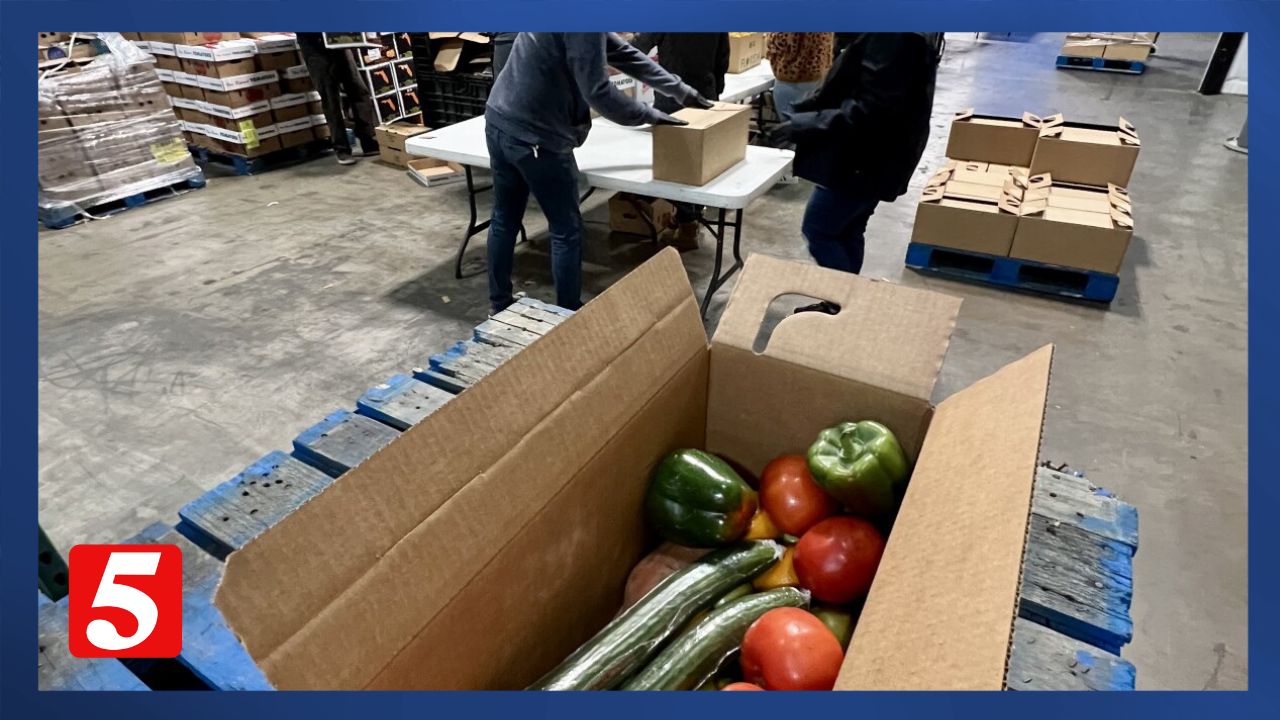NASHVILLE, Tenn. (WTVF) — Second Harvest Food Bank of Middle Tennessee is sounding the alarm as federal budget cuts threaten to leave thousands without adequate food assistance.
Nearly 250,000 people in Middle Tennessee rely on SNAP benefits, commonly known as food stamps, which face the largest cut in the program's history under the President's spending plan.
"Since 2019, there's over 100,000 more people that are food insecure, so that has grown significantly. And when you look at just last year alone to this year, there's been a 10% increase," Nancy Keil, President and CEO of Second Harvest Food Bank of Middle Tennessee, said.
The situation in Davidson County is even more dire, with a 43% increase in food insecurity since January, while funding and food supplies continue to decline.
Second Harvest has already seen over $3 million in funding cuts.
"There is a 30% reduction in food that we're getting from the USDA. And what's unique about this food is it's all fresh produce, dairy, and protein," Keil said.
The crisis is expected to worsen as President Trump's "One Big Beautiful Bill" significantly reduces food aid programs.
"In Tennessee, holistically, that's about 300 million meals over the next decade. That is, it's going to be gone."
Second Harvest serves more than 245,000 people across 46 counties who depend on SNAP benefits. The new legislation introduces the most substantial SNAP cuts ever, requiring parents to work if their children are 14 and older, removing some legal immigrants from the program, and tightening eligibility requirements based on utility bills.
"It's a lot that goes into it, and it's really difficult to access the program without submitting those documents, so not just anyone can get on this program," Kaley Shepherd said.
Shepherd, who oversees SNAP at Second Harvest, notes that the full impact of these cuts remains uncertain.
"With the cuts, it's unclear if people will fall off the program entirely, be reduced for some households, and then. Some people are no longer being eligible based on their age or their citizenship."
In response to these challenges, Second Harvest is appealing to the community for support.
"It does take the community," Keil said. "How can we get more access to food to make sure that that reaches people in need."
Tennessee receives approximately $1.9 billion in federal funding annually for SNAP benefits, accounting for about 14% of all federal revenues in the state budget. These federal dollars are spent at over 6,600 grocery stores and farmers markets throughout the state, providing crucial support to local businesses as well.
This story was reported on-air and written Kelsey Gibbs and has been converted to this platform with the assistance of AI. Our editorial team verifies all reporting on all platforms for fairness and accuracy.

The news surrounding student loan repayment has been ever-changing over the last few years. When it comes to your money, confusion is never a good thing. Thankfully, Robb Coles helps us sort out the path forward. Check out his story for some practical tips and insight behind the latest changes.
- Carrie Sharp




